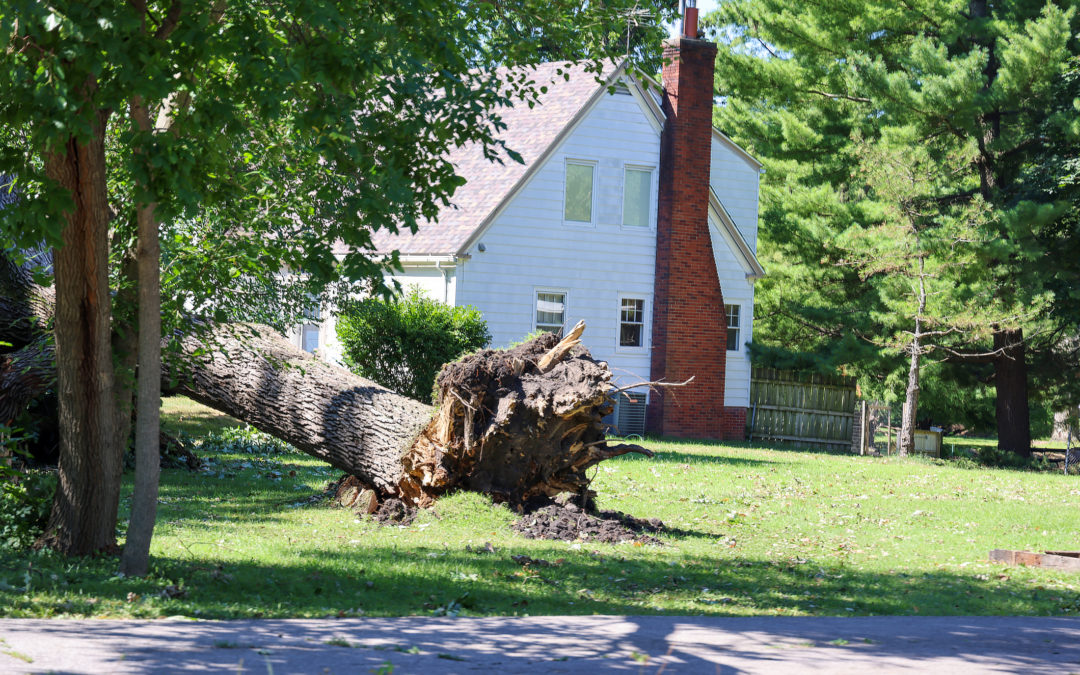On Monday, August 10, 2020, a massive storm system with high winds and isolated tornadoes tore through the Midwest, leaving a 700-mile path of destruction in its wake — from Nebraska all the way to Indiana. In Iowa, early estimates indicated that 43 percent of cropland was impacted across the state, flattening millions of acres of corn and soybeans, crippling grain bins, and tearing barns and machine sheds apart.

The National Oceanic and Atmospheric Administration (NOAA) estimated damages from the storm, known as a derecho, would amount to $7.5 billion — making it the most costly severe thunderstorm in United States history. The highest wind gust was clocked in Atkins, Iowa at an eye-popping 126 mph, and it was estimated that peak wind gusts reached 140 mph. These extreme winds are the equivalent of what would be expected in an EF3 tornado or major hurricane.
When this devastating storm swept across the Midwest, many producers were already grappling with market disruptions due to the COVID-19 pandemic, and the derecho exacerbated the challenges many farmers were facing. As Congress began debating the latest stimulus bill, I kept this in mind and made it a priority to deliver much-needed relief for farmers and rural businesses impacted by the derecho and other natural disasters.
Last week, House committees began the markup process on the Democrats’ proposed $1.9 trillion stimulus bill. As a member of the House Agriculture Committee, I met with my colleagues on this committee to consider the $16.1 billion ag section of the bill. I had some concerns on how the money was being spent, so I proposed several amendments to improve the bill — including one to provide additional relief for producers impacted by natural disasters in 2020.
I am extremely pleased that my amendment, which would include assistance for those affected by high wind storms like last summer’s derecho, was adopted by the House Agriculture Committee. By reallocating some of the funds appropriated in the original bill to be used for the United States Department of Agriculture’s (USDA) Wildlife and Hurricane Indemnity Program (WHIP), this legislation will help thousands of producers across the country who have suffered losses from natural disasters or severe weather — including floods, snowstorms, and droughts.
Iowa is not the only state that stands to benefit from this effort. We suffered from both drought and the derecho, but many states in the South and West were also affected by wildfires, severe droughts, and other weather-related incidences that further harmed producers and rural businesses who were already dealing with the economic fallout of the pandemic.

On August 10, 2020, a large “derecho” storm swept across the Midwest. Iowa was one of the hardest-hit states. The Buccaneer Arena, home of the Des Moines Buccaneers (a USHL hockey team) took severe damage to the roof and knocked over some large trees.
While the overall stimulus package is chock-full of Democrats’ reckless spending proposals and far-left agenda items, this commonsense amendment will provide much-needed, timely relief for those in the agriculture community who have been affected by the pandemic and natural disasters.
I was elected to deliver results for Iowa farmers, main street businesses, and working families, and that is exactly what I am doing. As the breadbasket to the world, I will continue fighting tirelessly to deliver for the hardworking men and women in our agriculture community.
Randy Feenstra was born and raised in Hull, Iowa, where he has served as City Administrator, Sioux County Treasurer, and Iowa state Senator. In January, he began serving his first term in Congress, representing Iowa’s 4th Congressional District.



